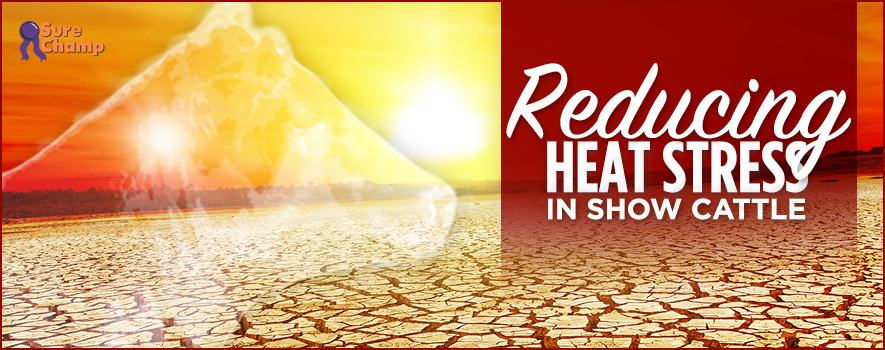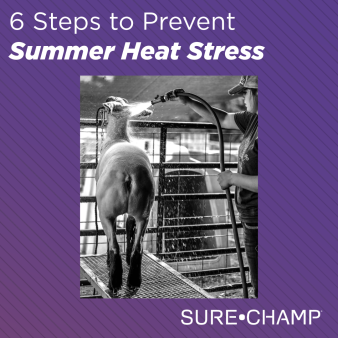
Warmer temperatures are quickly approaching, and that means you should start considering how to help your cattle handle the heat. Heat stress is almost inevitable, but some management practices can be implemented to help animals better cope with rising temperatures.
All mammals regulate their internal body temperature involuntarily. Heat stress occurs when the animal’s ability to self-regulate and lower core body temperature is overwhelmed and the animal’s performance and/or health is compromised.
Signs of heat stress:
- Bunching in the shade
- Excessive salivation
- Foam around the mouth
- Panting
- Lack of coordination or trembling
Effects of heat stress:
- Reduced feed intake and weight gain
- Poor breeding efficiency
- Lower milk production
- Increased disease susceptibility
- Death in severe cases
Being proactive is the best approach to helping animals deal with heat stress. Having a solid plan in place to combat heat stress could play a crucial role in maintaining your animal’s performance during periods of increased heat. Some options include:
- Shade: Temperature can be lowered by providing areas where animals can get out of direct sunlight.
- Improved ventilation: Providing fans or allowing for adequate air movement helps alleviate heat stress.
- Clean, cool drinking water: Water is necessary to keep the animal’s core body temperature within normal limits. Providing cool water will also help cool the animal’s core.
- Wetting: Gradually wetting an animal with cool water from sprinklers or hoses is an effective way to cool an animal suffering from heat stress. Wetting the ground can also cool the area where animals lay and reduce the effects of heat stress.
- Timing of feeding: By moving the animal’s feeding time to late afternoon or evening will allow rumen fermentation (which creates heat) to take place during cooler temperatures.
It is nothing new that BioZyme® is committed to improving the well-being of animals through nutrition, and Amaferm, found in all Sure Champ products, not only improves digestive health and stimulates appetite, but is also research-proven to decrease body temperature. Amaferm is also research-proven to increase water and feed intake, which is often a problem in heat stressed cattle. Sure Champ Cattle can be mixed in the ration or top dressed daily to combat the effects of heat stress. Sure Champ Climate Control can be used during times of extreme temperature changes such as going from a climate controlled barn to a trailer, or from a cool trailer to a hot barn.
Please note that despite all the benefits that VitaFerm HEAT mineral has when feeding to your cow herd, BioZyme Director of Nutrition and Technical Sales, Kevin Glaubius, does NOT recommend feeding VitaFerm HEAT to your show cattle. “HEAT mineral has been shown to modify feed intake. Cattle on HEAT consume more frequent, smaller meals throughout the day. In show animals we often only feed them twice per day or they are tied up, so they can’t consume more, smaller meals. For that reason, the unknown question that remains is ‘Will feeding HEAT reduce feed intake leading to lower performance?’ Until we can positively answer that question we are erring on the side of caution and not recommending this product for show animals,” said Glaubius.

